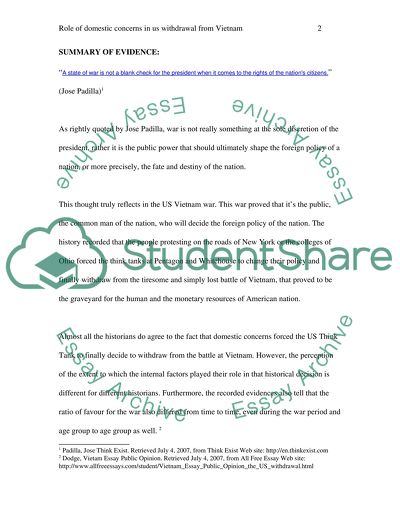Cite this document
(“Role of domestic concerns in us withdrawal from vietnam Essay”, n.d.)
Retrieved from https://studentshare.org/politics/1519042-us-withdrawal-from-vietnam
Retrieved from https://studentshare.org/politics/1519042-us-withdrawal-from-vietnam
(Role of Domestic Concerns in Us Withdrawal from Vietnam Essay)
https://studentshare.org/politics/1519042-us-withdrawal-from-vietnam.
https://studentshare.org/politics/1519042-us-withdrawal-from-vietnam.
“Role of Domestic Concerns in Us Withdrawal from Vietnam Essay”, n.d. https://studentshare.org/politics/1519042-us-withdrawal-from-vietnam.


